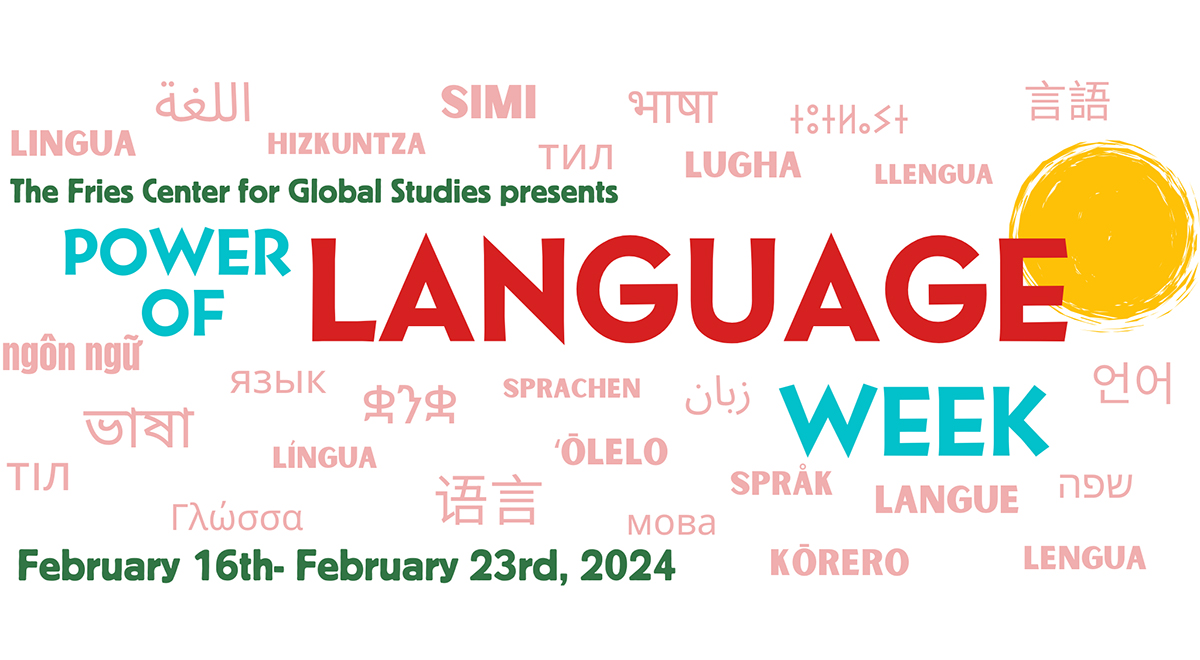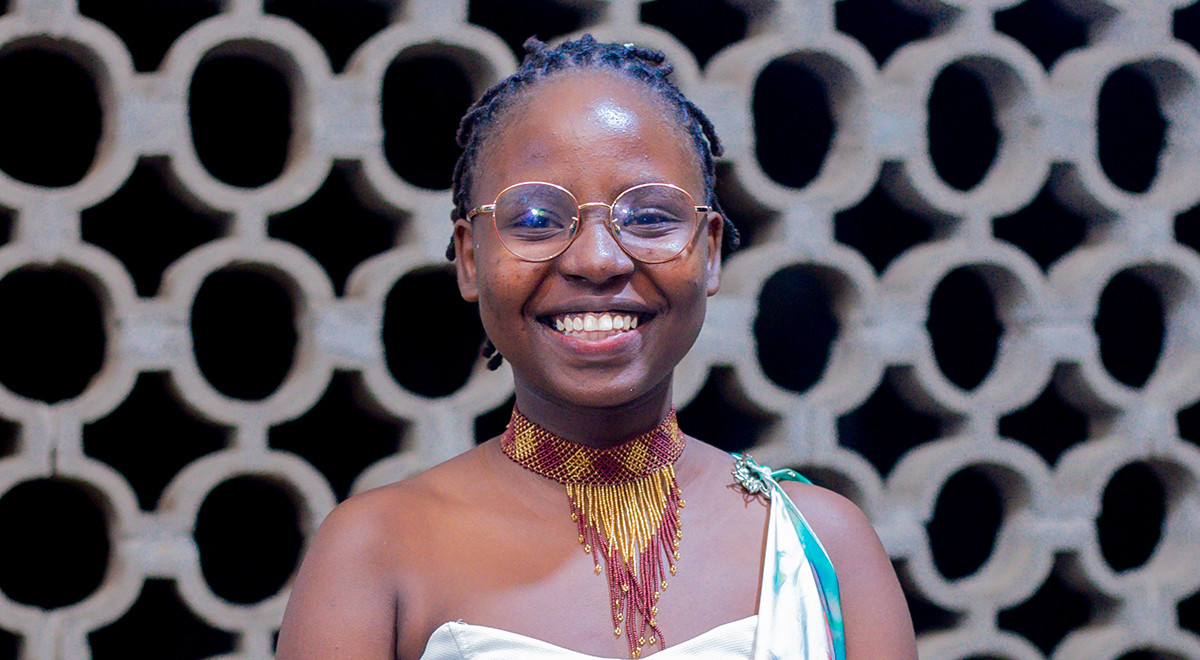Power of Language Week to Celebrate Multilingualism at Wesleyan

Wesleyan is home to a wide cast of identities, life experiences, and traditions among its over 3,000 students. Each bring their own stories and backgrounds that combine to make campus a place where difference is celebrated. At Wesleyan, each person has a place to find their community.
For some of Wesleyan’s students, finding community lays in sharing where they come from outside of the borders of campus. The university’s second annual Power of Language Week is a chance to set aside time to cherish and display those identities and the many languages that can come with them.
The Fries Center for Global Studies and Office of International Student Affairs, and many other partners across the university, aim to foster and celebrate diversity, equity, and belonging through language practice at Wesleyan with this dedicated week. Event sponsors also hope to champion the preservation and cultivation of Wesleyan’s multilingual identities across campus through the Power of Language Week’s programming.
“By creating spaces where students can show up as their authentic selves to speak, listen, and learn from one another, we enable not only rich opportunities for intercultural learning through the sharing of individual stories and experiences, but also the potential to catalyze life-changing trajectories,” said Morgan Keller, Director of the Office of International Student Affairs.
Power of Language Week will run from Feb. 16 to 23 and will feature talks from Wesleyan’s International Speakers Program, a staged reading of a one-act play, multilingual karaoke, and more. The event series is held in honor of the Bengali Language Movement and International Mother Language Day on Feb. 21.
“Sharing my culture has just become a way of trying to hold on to my sense of home and trying to make sure that people understand where I’m coming from,” said Vik Georgieva ’27, undeclared major with an eye toward a neuroscience and behavior, psychology, and government triple major.
Georgieva, one of the International Speakers, is a native of Haskovo, a small town in southern Bulgaria near the borders of Greece and Turkey. Culturally, Bulgaria is different from the United States in some ways. People nod and shake their head differently to say yes or no, are more direct with phrasing, and have foods that cannot be found in the states, Georgieva said. These differences have often led to some joyful moments where she can both educate others and listen to their experiences.
She plans to focus her interactive talk, which is scheduled for Feb. 21 at 5 p.m., on the history and origin of the Cyrillic alphabet, Bulgarian poetry, and some folklore music. Her talk will act as a crash course in the Bulgarian language—where it comes from, what it looks like, and how it sounds. She said there will be 30 minutes for her presentation, followed by a 30-minute question and answer session.
“We want to make it fun and inspire people to take the first look into something that they might have not previously thought about before,” Georgieva said.
Venezuela-native Adriana Alfaro ’26, government and theater double-major, said she is excited to share her culture and what it was like before the current regime took power. She said it was a melting pot of different cultures. She will present alongside African Scholar Abdiasis Daaudd ’27 of Somaliland on Feb. 23 at 3 p.m.
Daauud plans to explore the relationship between Somali and Arabic countries through the lens of language, he said. “I hope students will learn that learning a new language is more than just learning the words or the phrases. You get introduced to a whole thought process you never thought was possible,” he said.

Holiness Igiraneza ’27, African Scholar from Burundi, will present on the Kirundi alphabet, poems and music dedicated to cows, and drum sounds used to transmit messages across distances.
“Sharing our different cultures guides us away from separation and keeps us together, and I think that’s a wonderful thing,” Luna Kwon ’27, international speaker and student from South Korea, said.
The week kicks off with a staged reading of The Elephant is Very Like, a one-act play by Ankita Raturi, on Feb. 15 at 7:30 p.m. in the Theater Department Studio. The play narrates the story of a woman who can only speak the words which have been spoken to her and a man who tries to help her find her voice through multilingual poetry and dance. The reading will be produced by Malaika Fernandes ’23, under the guidance of Assistant Professor of Theater Maria-Christina Oliveras and Professor of Dance Hari Krishnan, and directed by Aneesha Kudtarkar.

